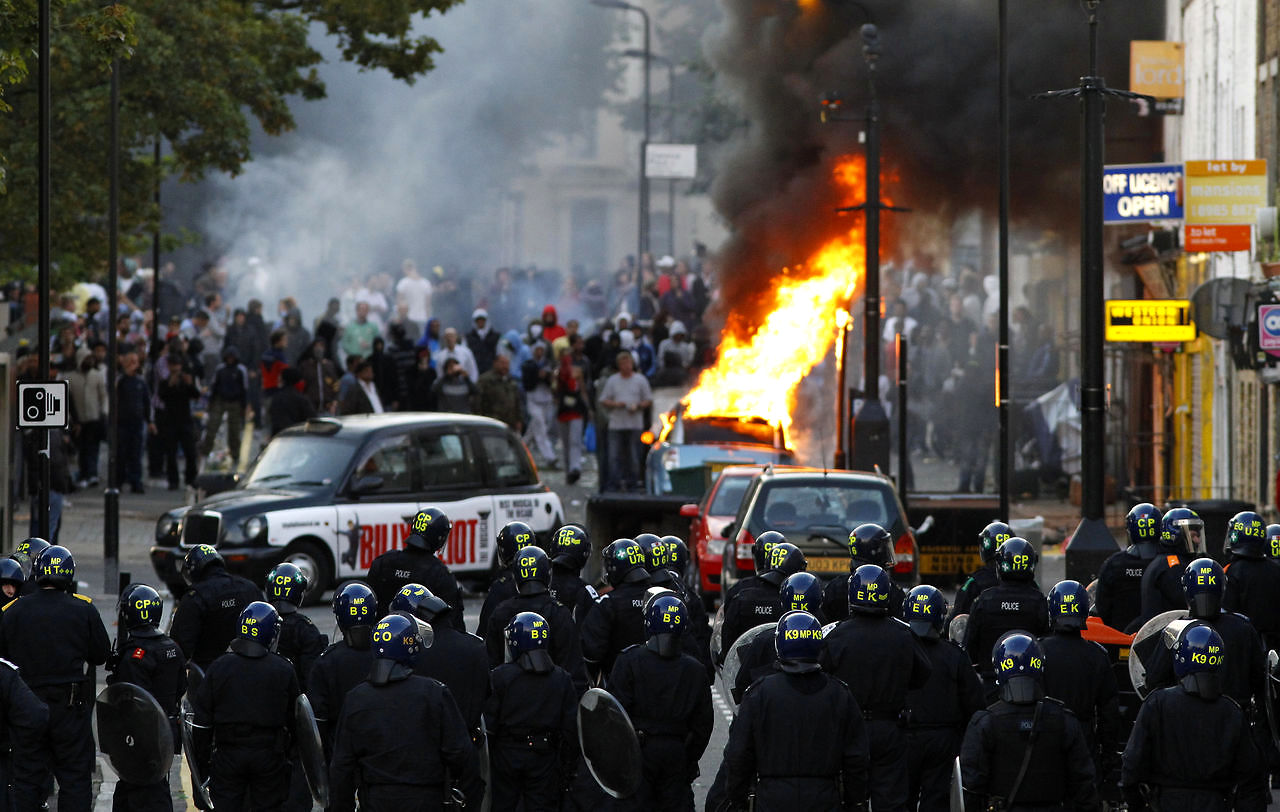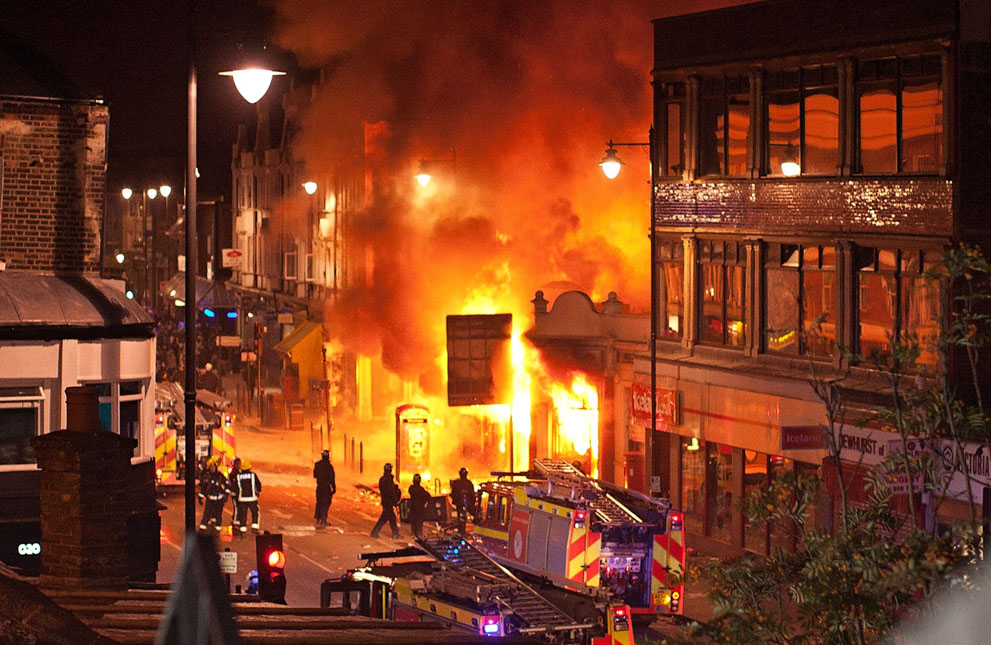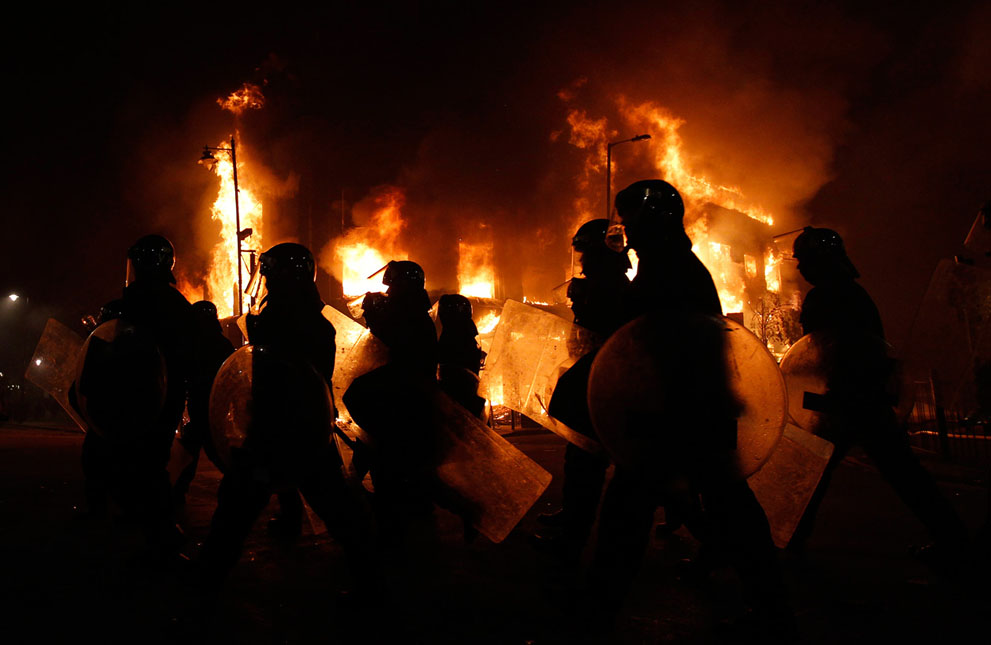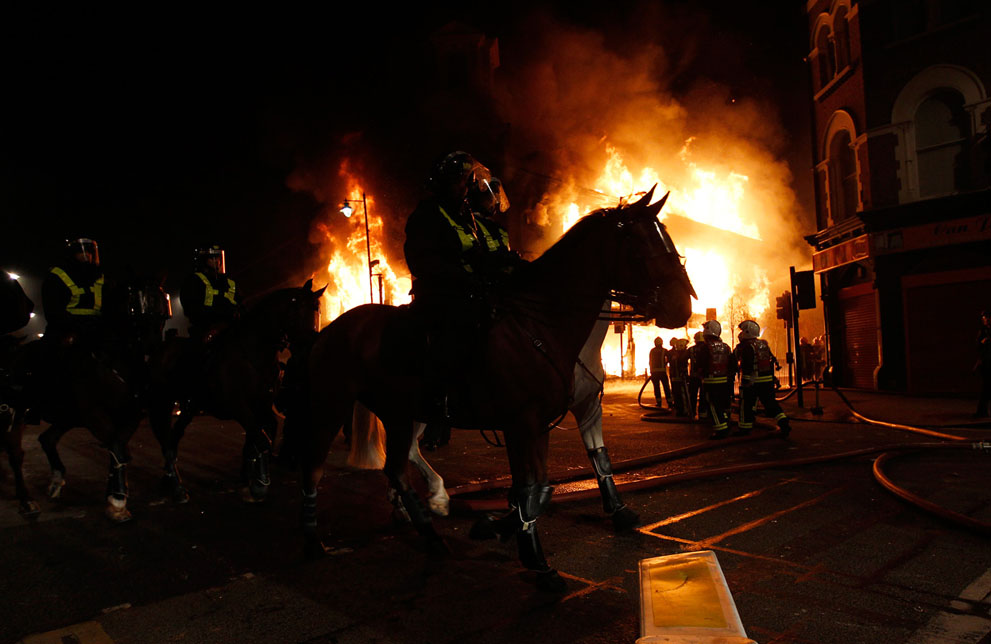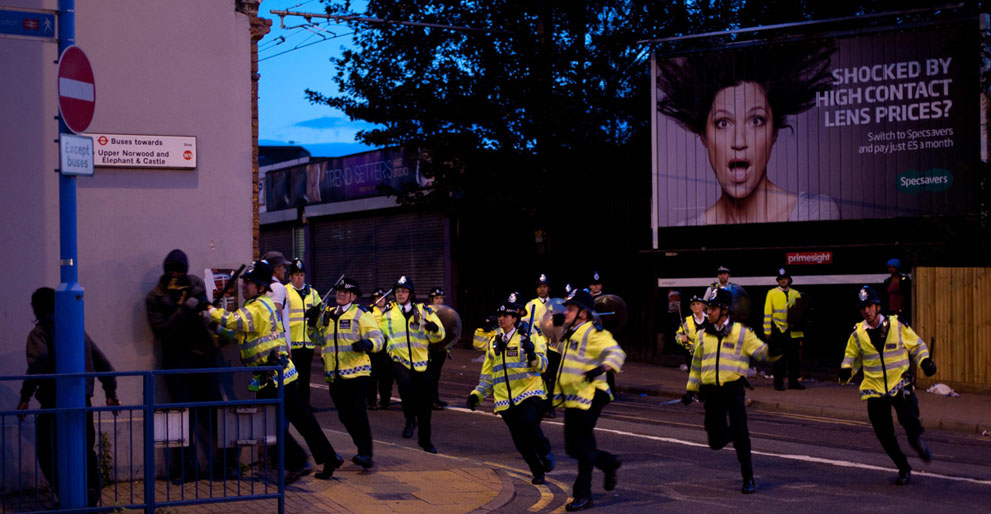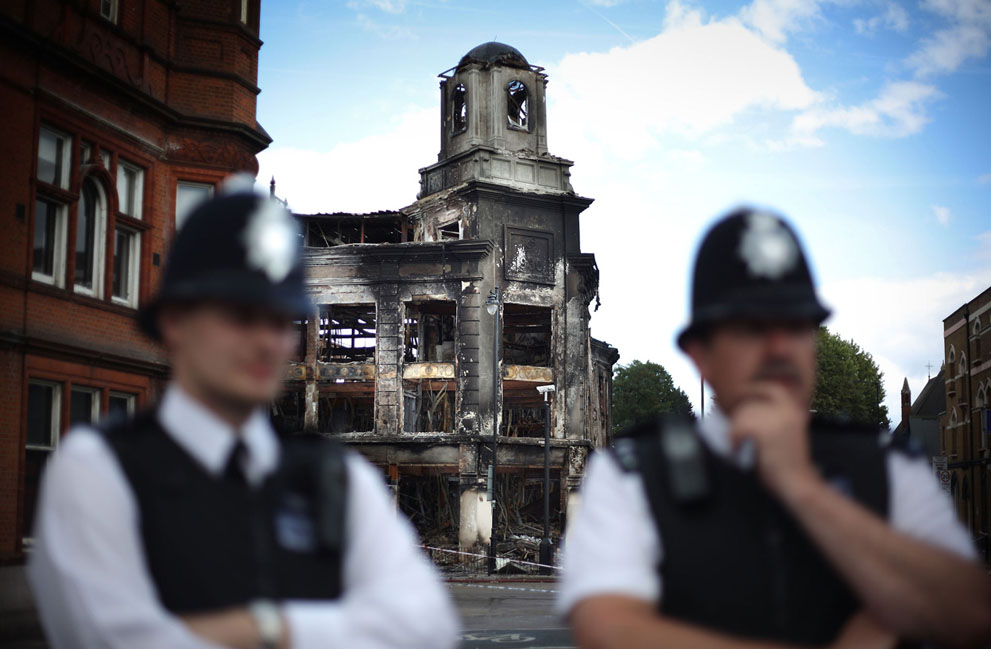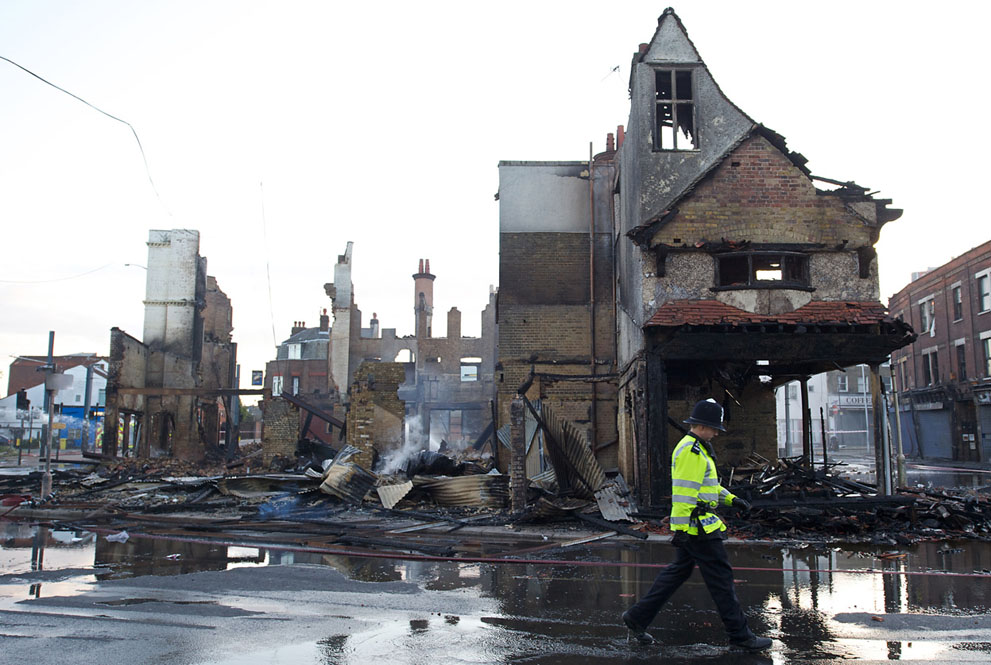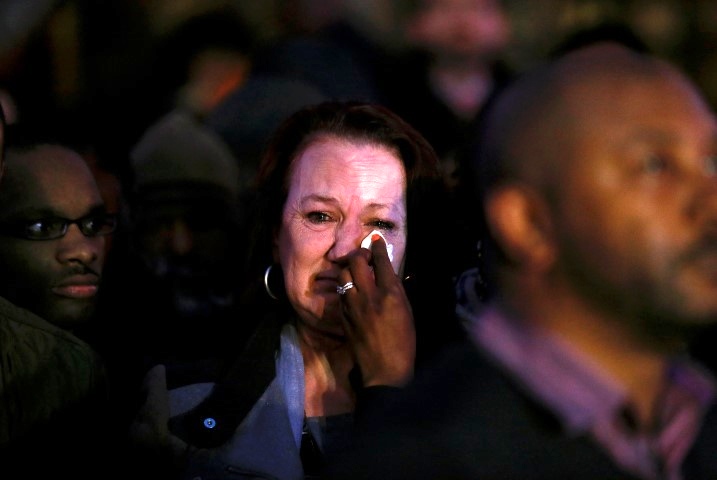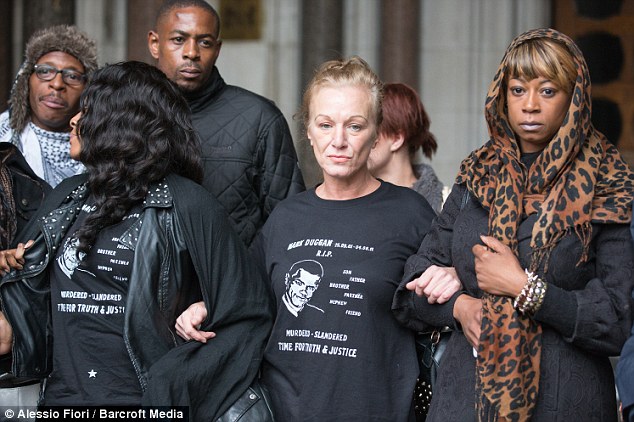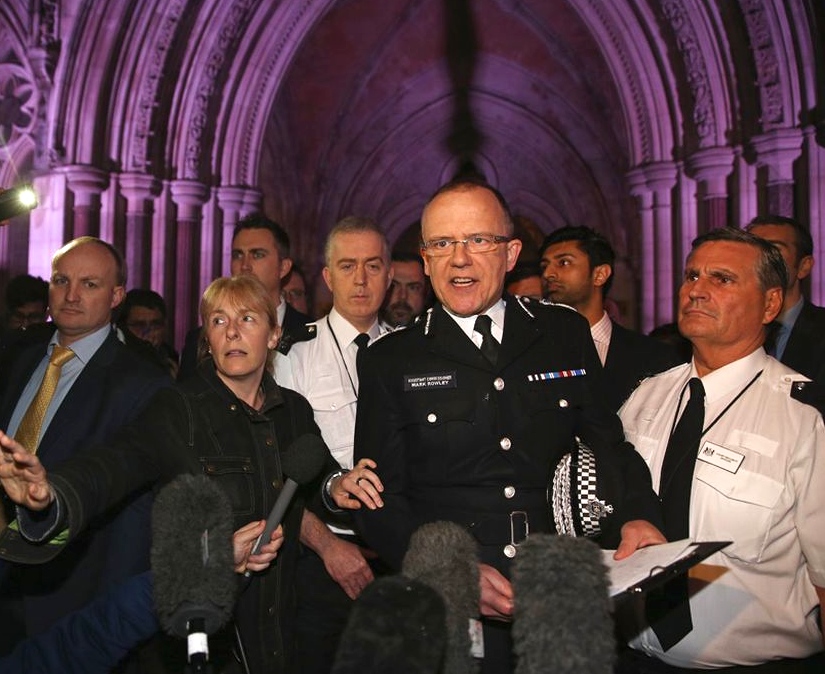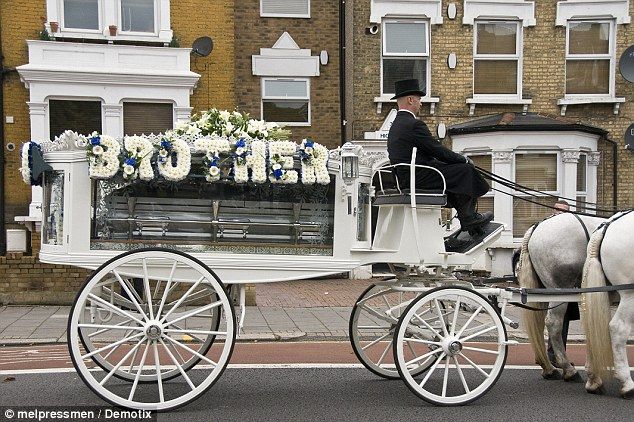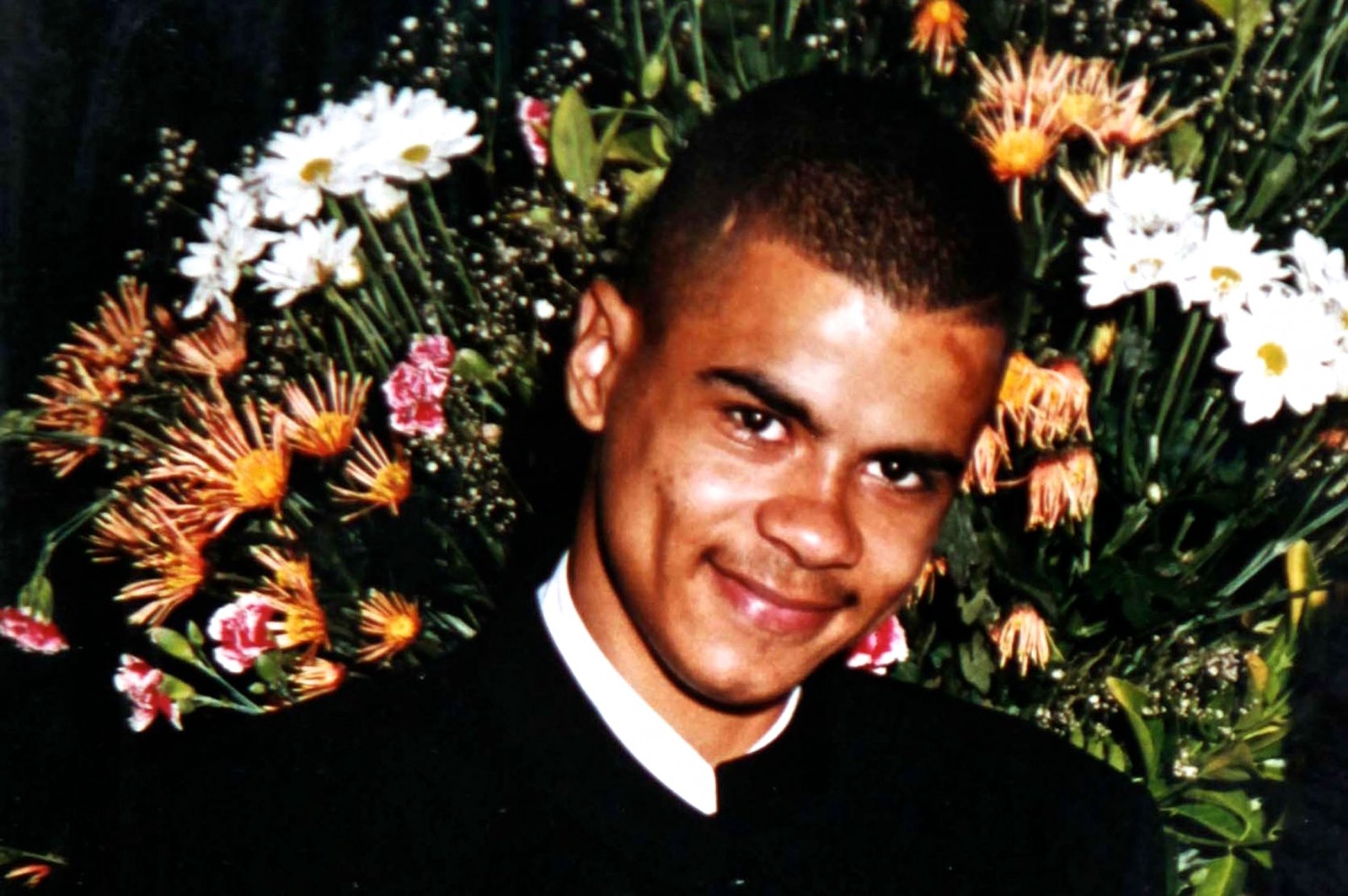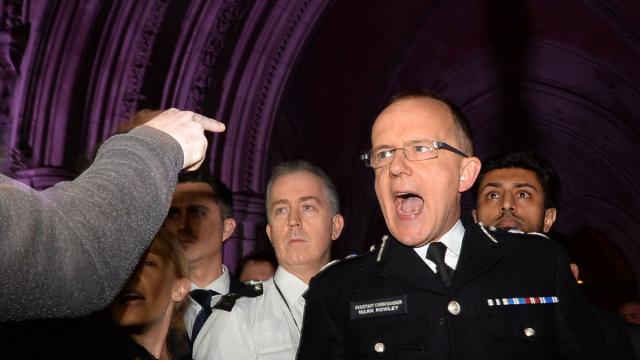
Mark Duggan’s killing sparked the 2011 summer riots, the largest ever in Britain. Over two years later, on Wednesday a judicial inquiry concluded it was a "lawful killing" despite contradictory evidence given by his killers: the police.
“It is a shocking and perverse verdict because the jury agreed 9-1 that Mark did not have a gun in his hand," London resident Hannah Dee told Occupy.com on the night of the verdict. "They shot an unarmed man but said that was a lawful killing – so there is obviously a huge amount of anger and shock.”
Dee is from the group Defend The Right To Protest, which has campaigned alongside the Duggan family for justice in the 29-year-old's murder. She stood beside them outside Tottenham police station on the evening the verdict was announced, as Duggan's family and the Tottenham community mourned. Many feared the decision implied growing police power in the city.
Dee pointed out that the family of Sean Rigg – who died while being restrained in police custody – attended the Duggan verdict in a show of solidarity. Over 1,433 people have died due to police operations since 1990 though there has not been a single conviction for a police officer since 1969.
On August 4, 2011, Duggan was stopped and ordered out of a taxi in Tottenham North London. Soon after, he was fatally shot. The police claimed he was armed and fired first. But the inquiry dismissed both of these claims, and further inconsistencies later emerged between the official account and citizen eyewitness testimonies and videos.
Both the minicab driver and "Witness B" said Duggan ran when the vehicle was ambushed, contradicting police accounts.
"Witness B" testified that Duggan, after first running, was shot while surrendering with his hands in the air. A medical expert explained it unlikely for Duggan to have thrown a gun six meters away after being shot, further conflicting with the police narrative. Other inconsistencies concerned the gun, which police said they found in a sock. Neither sock nor gun had DNA or fingerprints and the video shows an officer directing other officers “to go and secure a gun which hadn’t yet been found.”
“When they executed my nephew Mark Duggan, they sent a wave of fear across young people – that was purposefully done," Carole Duggan, Mark Duggan's aunt, said on a panel last month discussing police brutality and repression.
“The night they murdered my nephew, on the 10 o’clock news it was splashed all over: ‘Gangster in shootout with police, shot dead.’ We did not understand why they did that, but we do now. It meant an eyewitness was not willing to come forward, because he was in fear of gangs – simply because of the smear campaign started by the police and media," she said.
“The verdict is a major setback to the family,” Hannah Dee added. “But we always knew that it'll be difficult to get justice through the system, and partly because right from day one there were lies spread by the media and it's been over two years since Mark's death that the inquest opened.
"The Independent Police Complaints Commission, the media and the major institutions have all been constantly propelling a racist narrative about Mark, saying he was a gangster. So the whole inquest was stacked against the family.”
A Daily Telegraph article, written four hours after the shooting, exemplifies how the police influenced the mainstream narrative. It claims that “gunman Mark Duggan opened fire on the police, wounding one officer," and adds, "Police sources said the dead man was a 'well known gangster.'"
It even quoted the IPCC, restating police claims that Duggan had opened fire. Yet only nine days later after the killing, the IPCC admitted it was wrong – that the bullets were police issue and likely ricochets.
Reaction to Wednesday's decision has been polarizing, as raw public outrage expressed toward the assistant police commissioner, Mark Rowley, has led to calls for a peaceful protest to take place tomorrow.
“I'm scared, I don't know what's going happen to their [Tottenham’s youth] future,” Paul, a youth worker who assists teenagers in Tottenham, reacted on the evening of the verdict. “The number one thing for kids is trust, so how as a youth worker can I say, 'Trust the system, trust the police?' How can they, with all these questions?
"Is it the police's right to kill people?" he added. "If we have lost their trust, this means we have got nothing else.”
The anger that followed Duggan's killing quickly escalated from peaceful protests into riots that swept the nation. Speaking on August 15, 2011, 11 days after Duggan’s shooting, Prime Minister David Cameron reiterated his “Broken Britain” slogan and pushed even harder foe welfare reforms.
"These riots were not about government cuts: they were directed at High Street stores, not Parliament. And these riots were not about poverty,” said Cameron, who like other politicians ignored the social and political source of people's rage.
“Since the riots, the council, London’s Mayor and the government have decided to socially cleanse Tottenham,” said Jacob Secker of the local group Defend Council Housing.
Secker described how authorities' new Tottenham Area Action Plan states that "social housing can be detrimental in terms of creating a mixed and balanced community." For him, the riots were being used as a political excuse "to get rid of lower income people, out of Tottenham.”
“The government is blaming immigrants for the problems in social housing," Secker added. "But the immigrants aren't causing the problems. It is landlords, the council and the governments reducing the available housing stock. It's blatant racism.”
Further countering the government line, the academic study Reading the Riots used extensive public interviews to reveal that the 2011 riots were a reaction to police brutality in people's everyday lives – particularly from stop and search powers, which are comparable to the contentious stop-and-frisk policy in New York City.
The report also links the riots to cuts in education funding that have made post-16-year-old education unaffordable for many in Britain, especially compounded by the government’s massive hike in tuition fees.
The youth worker, Paul, expressed worry about the city's future adults. “There are no real opportunities in the area for the next generation. The main employer is a large supermarket. Even the High Street shops all face closing down,” he said.
He recalled how Jesse Jackson came to Tottenham after the 2011 riots, and reiterated his message:
“There is a broken promise we get told, that we can become British, we can have citizenship and get the same rights and we should be treated the same as everyone else," said Paul. "But this is not what we discover.”
3 WAYS TO SHOW YOUR SUPPORT
- Log in to post comments

